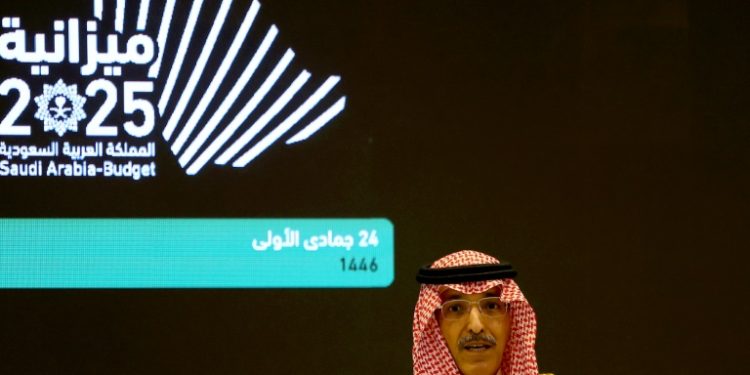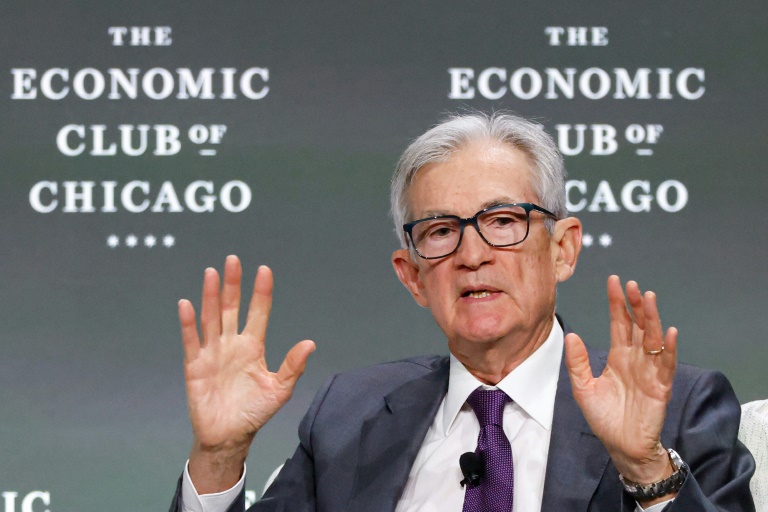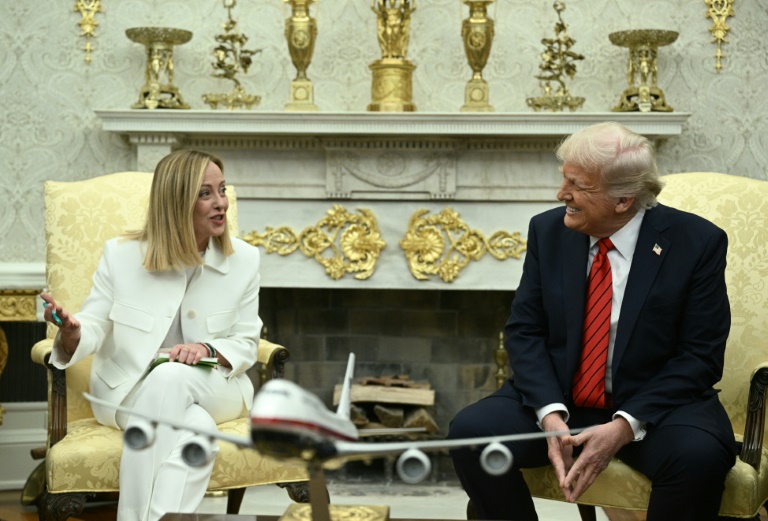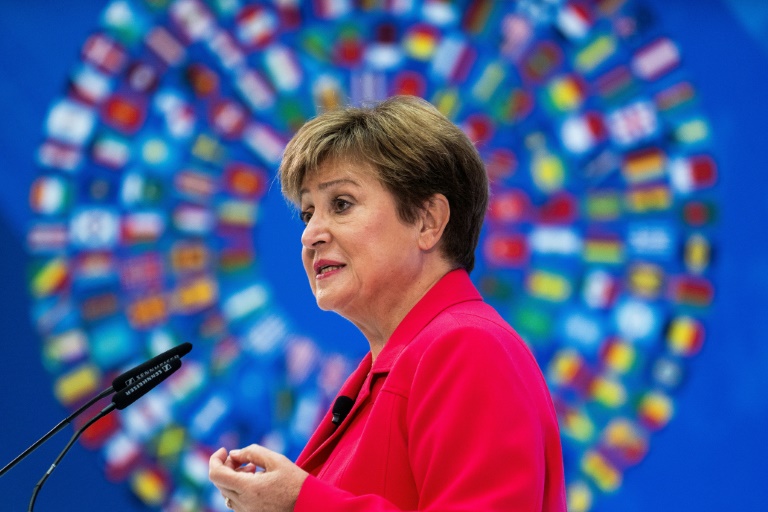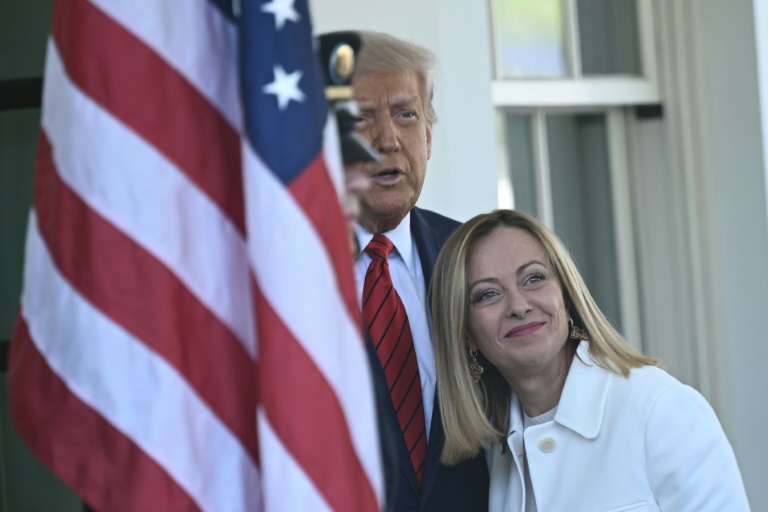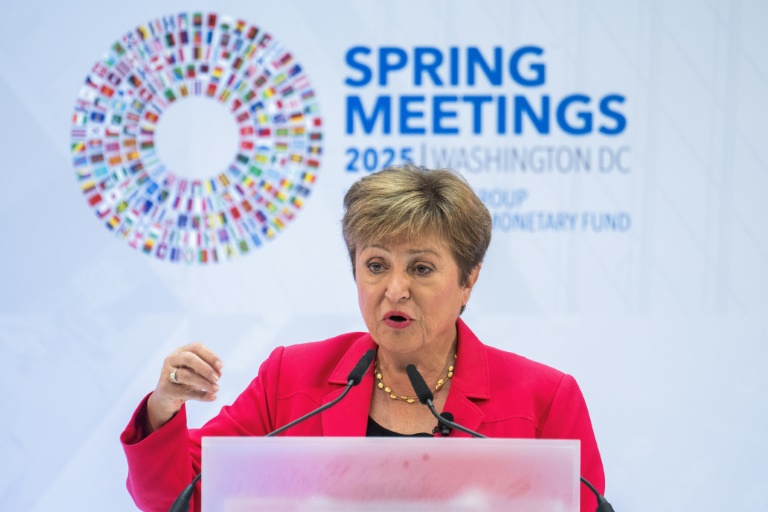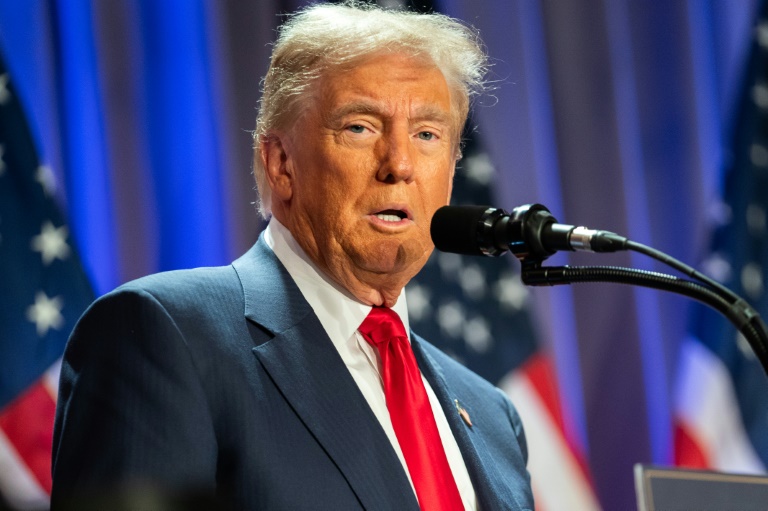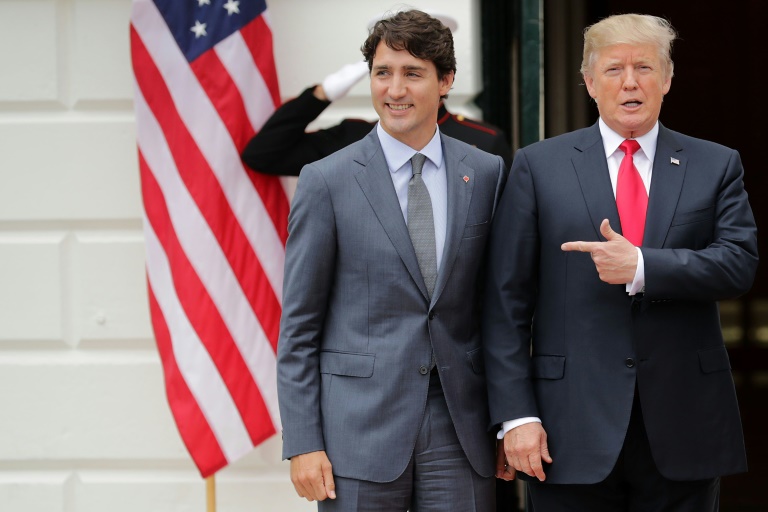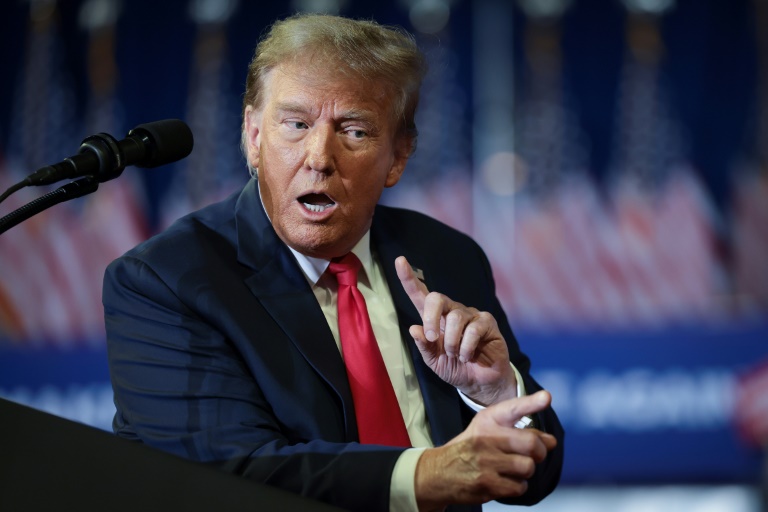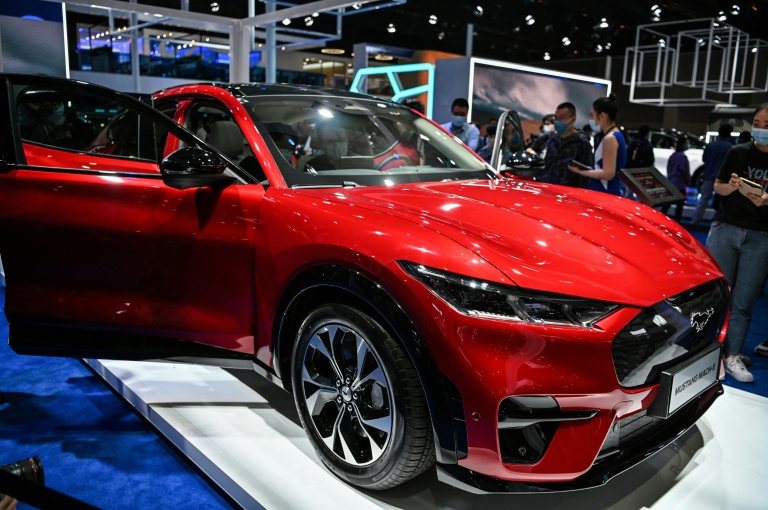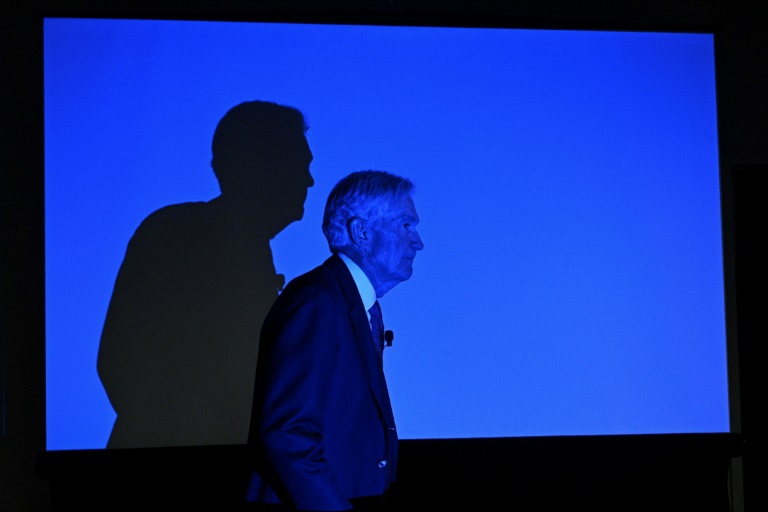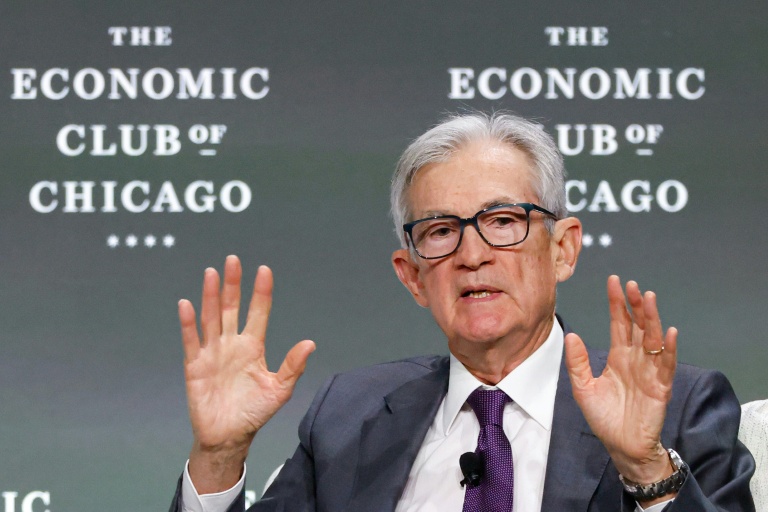Riyadh (Saudi Arabia) (AFP) – Saudi Arabia on Tuesday approved a budget for 2025 that projected a smaller deficit than last year as officials recalibrate a reform drive meant to transition the economy away from oil. The expected deficit of $26.8 billion, amounting to 2.3 percent of GDP, is down from a 2024 deficit of $30.6 billion, or 2.8 percent of GDP, according to the budget published by the finance ministry. That reflects a drop in expenditures from 1.345 trillion Saudi riyals, or roughly $358 billion, to 1.285 trillion riyals, or roughly $342 billion, the budget said.
The world’s biggest oil exporter and the Middle East’s largest economy is just over halfway through a splashy reform drive featuring projects that have been dogged by questions about their viability. They include NEOM, a planned futuristic mega-city in the desert, and resorts along the Red Sea coast meant to draw tourists to the formerly closed-off kingdom. Finance Minister Mohammed al-Jadaan told reporters on Tuesday the government was prioritising sectors including industry, tourism, and technology to facilitate structural changes to the economy.
Crown Prince Mohammed bin Salman, Saudi Arabia’s de facto ruler, said the new budget would produce “sustainable levels of public debt and significant government reserves, in addition to a flexible spending policy that enables it to confront challenges and fluctuations in the global economy,” the official Saudi Press Agency reported.
In 2022, Saudi Arabia recorded its first budget surplus in nearly a decade after Russia’s invasion of Ukraine led to a surge in oil prices. But last year’s budget signalled a return to deficits, with Jadaan saying at the time this was the product of a deliberate decision to boost spending. At an investor forum in Riyadh last month, Jadaan acknowledged some “challenges” in implementing Vision 2030 but said broadly the reform agenda was “on track”. The government has been “recalibrating our plans,” he said, trying not to overheat the economy and to give the private sector time to “catch up” with ambitious proposals.
There has been mounting scepticism over signature projects like NEOM, which is meant to feature a ski resort and twin skyscrapers 170 kilometres (105 miles) long. Authorities have reportedly scaled back 2030 size and population targets for NEOM, though officials have not confirmed any revisions. Jadaan told journalists on Tuesday to “focus on the bigger picture” rather than individual projects. “NEOM is not a five-years plan. NEOM is a 50-plus years plan. If anyone is thinking that NEOM in its grand size is going to be built and operated and making money in five years, that’s foolish,” he said. “Some projects within NEOM will make returns in the short to medium term, but this is a very long-term programme.”
Jadaan also said there would be “a pickup in spending on military this year and next year” to help create a stable environment for reforms to succeed. “If you are as ambitious as we are in terms of our economic plan, you need stability. And for stability, you will need to have deterrent capabilities at your disposal,” he said. “And with all the geopolitical tensions around globally, you need to make sure also you have your own local capabilities.”
The new budget estimates that GDP will have grown by 0.8 percent in 2024, “driven by an increase in non-oil activities, which are expected to grow by 3.7 percent,” the finance ministry said. The economy is expected to grow by 4.6 percent in 2025, it added.
The budget was released roughly two weeks before the FIFA Congress is set to formally approve sole candidate Saudi Arabia as host of the 2034 World Cup. Jadaan said the government would be “ready” to build the necessary infrastructure to host the tournament. “When the announcement is made, we will be ready,” he said. “We have taken that into consideration in terms of also making sure that what we have planned in terms of new stadiums and connectivity is ready for 2034.”
© 2024 AFP

